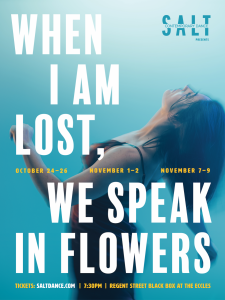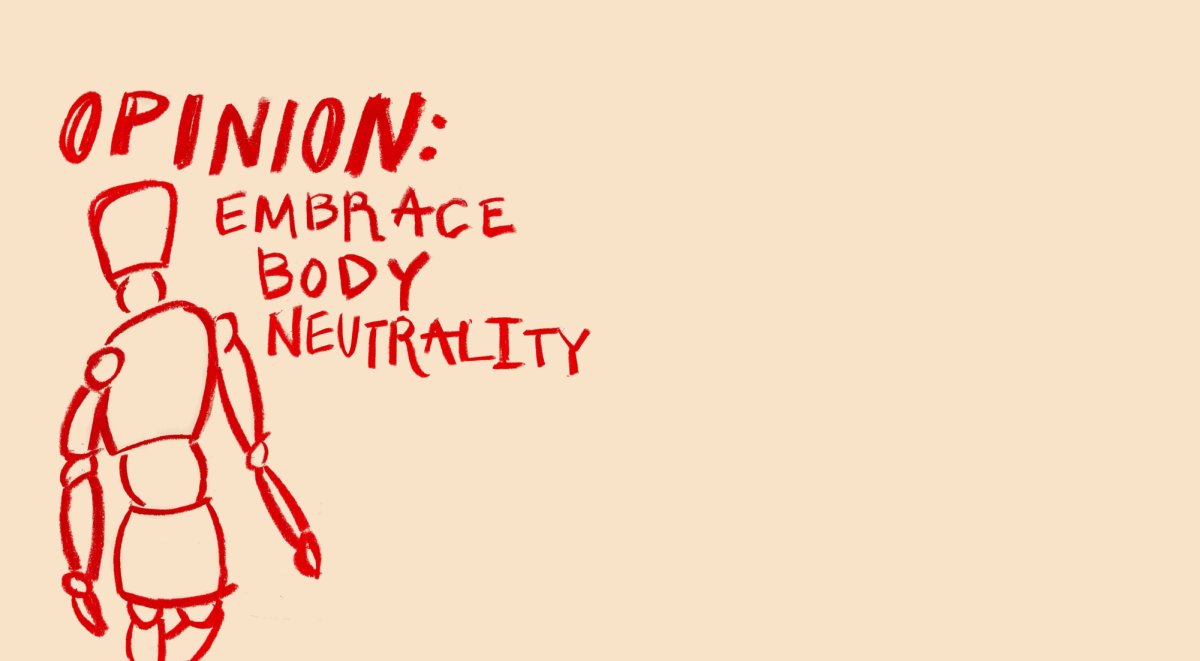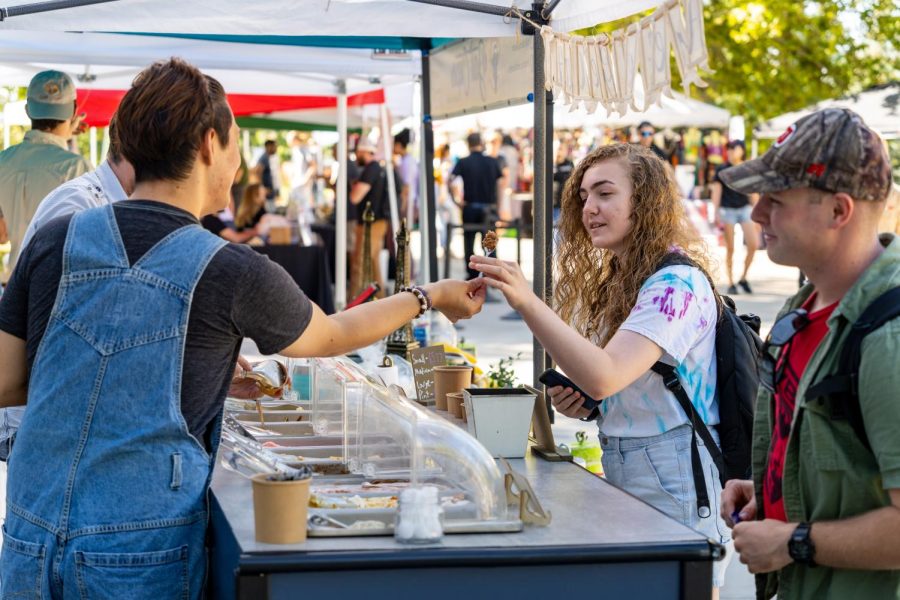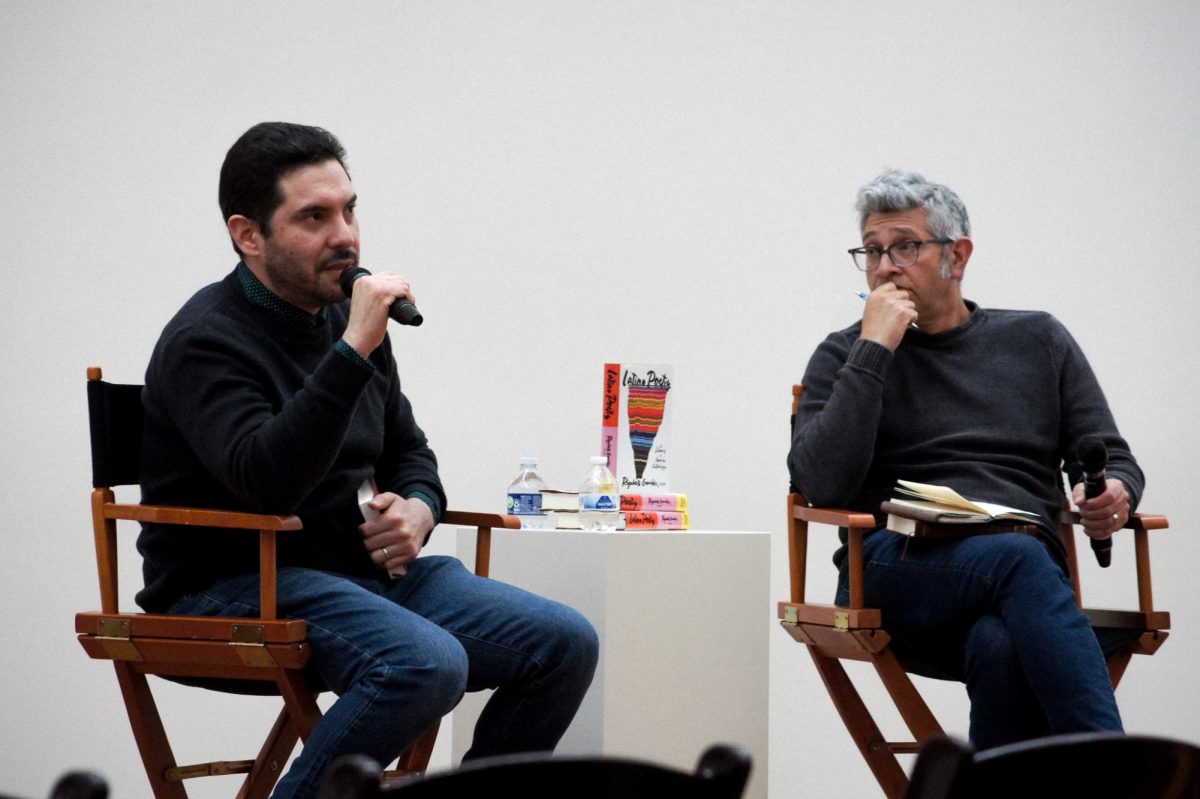SALT Dance Finds Beauty in Tragedy
October 24, 2019
When life presents us with tragedies, how do we find the beauty in the pain? When we are forced to confront physical or cognitive deterioration, how do we cope and find support? What happens when you can’t function normally in everyday life? How do we go on living, even once life as we know it has completely changed?
SALT Contemporary Dance explores these questions and more in their latest production, “When I am Lost, We Speak in Flowers.” SALT Contemporary Dance, a local nonprofit organization, “celebrates upward evolution and innovation in dance, thus elevating the vibrancy and diversity of the community.”
“When I am Lost, We Speak in Flowers” is centered around themes of love and loss, of searching for support and reckoning with physical and mental changes over time. The stage is set with strewn flowers across the floor and a set of chainlink fences mark the back of the stage — these fences open to a window looking at the city and, coincidentally, the new installment of “Pages of Salt.” Throughout the production, the dancers’ movements across the floor shift the flowers on the ground, leaving clear marks of where they have been. At the same time, during the duet vignettes of the production, other dancers can be seen placing stemmed flowers into the crosshairs of the chain-link fence in a slow process of beautification, despite the pain and deterioration that the dancers’ characters experience. As a symbol of hope and beauty, these flowers help to create an air of possibility, even as the dancers showcase some of life’s greatest trials.
For Artistic Director Joni McDonald, “When I am Lost, We Speak in Flowers” presents a story about “finding life inside of tragedy.” McDonald said, “We all have these moments where we plan what life is going to do, and then something intercepts that and completely changes the course of our life … [and we have to try to] find the beauty inside of the struggle.”
“These struggles are ones that you can’t really come back from, where it’s not all of a sudden better, but you have to learn how to navigate through it and find the collateral beauty,” McDonald said. Through these great hardships, SALT Dance encourages us to focus on finding the hope and beauty in spite of the pain life may bring.

“When I am Lost, We Speak in Flowers” aims to help audience members find their own story in the dancers’ narratives, and dancer Amy Gunter Lolofie hopes audiences see themselves in the dance. “You’re not alone, these things are happening, and we can talk about it, and it’s okay.” For Lolofie — and SALT Dance — this production, despite its focus on tragedy, aims to create human connection and a sense of belonging. It’s impossible to go through life without hardship, but this production explores how we process and cope with tragic events.
Personally, one of my favorite moments of “When I am Lost, We Speak in Flowers” occurred as the five dancers on stage came together and took turns lifting and carrying one another. As the group supported each individual through the air, it seemed to send the message that we need to rely on others and we have a duty to help lift each other up through difficult times. It may be difficult asking for help, but if we get support from others, we will be better equipped to handle our own hardships.
Overall, “When I am Lost, We Speak in Flowers” was a successful exploration of how we process tragedies, search for beauty, find hope and receive support from loved ones.
“When I am Lost, We Speak in Flowers” opens for the public on Oct. 24, and it will run from Oct. 24-26, Nov. 1-2 and Nov. 7-9 in the Regent Street Black Box at the Eccles Theatre.
Tickets are $25, but students can get in for $20 with a valid student ID.
k.button@dailyutahchronicle.com
An earlier version of this article misidentified a quoted dancer. Her name is Amy Gunter Lolofie, not Aubry Mason. This version has also been updated to properly credit the photographer Chad Kirkland. We regret the errors.












